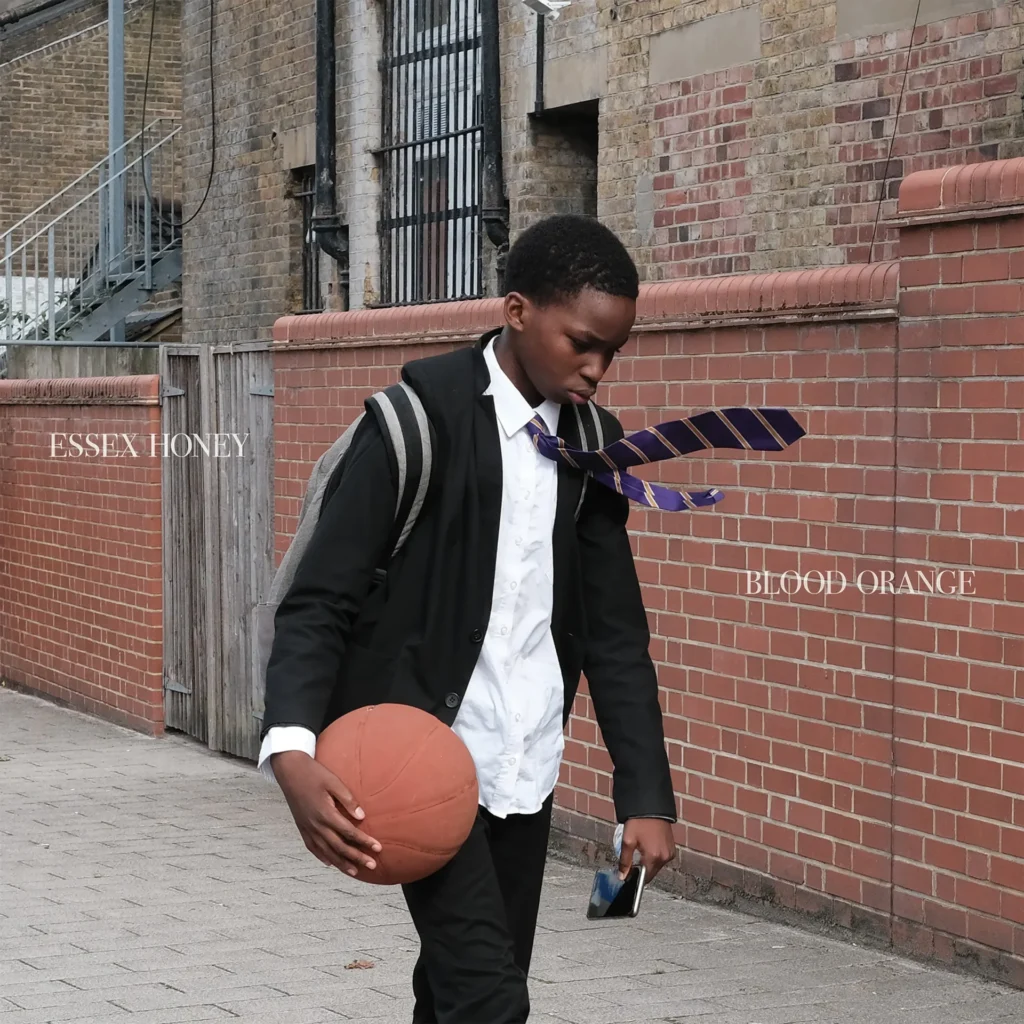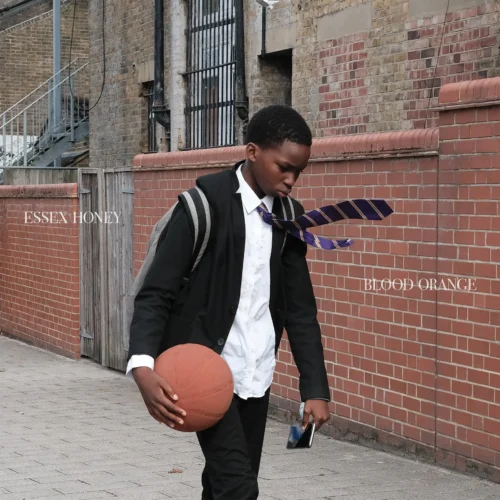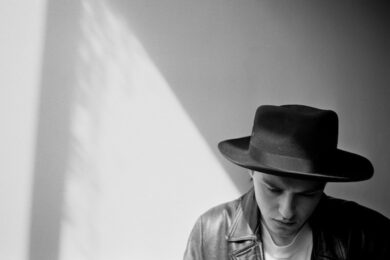The first memory I have of my nan dying is being far from home when it happened. It’s not like that for everyone. Some people remain in the place they were born forever. Some names never get printed on passport pages. That’s just the way it is. Others, though, leave young. They empty their childhood bedrooms and only occasionally return. But even for those who venture furthest, one bind remains: the family left behind. They age in your absence and, eventually, disappear completely. When they do, no matter how far you drifted, no matter how embedded you became, that loss pulls you back: the inevitable gravity of home.
On ‘The Last Of England’, a remarkably raw song from the new Blood Orange album, Devonté Hynes is left surveying the wreckage in the wake of his own mother’s passing. “Nothing more to do but leave, following the corners of the room” he sings, “I wash my hands and stare into the drain / Sitting in the dusk of the room you fell asleep”. It’s a feeling I remember well; the kind of directionless waiting which arrives in the wake of death, your body and mind returned by force to a place you had consigned to adolescence, left anticipating something which will never come.
There are few who stray from home as inevitably as musicians. Indeed, for the majority of his recording career, the music of the Ilford-born Hynes has been a distinctly American affair. As Lightspeed Champion he migrated to Nebraska to cut soaring Americana with Mike Mogis in the snow. When he began Blood Orange he decamped to a friend’s sofa in New York City, the covers of his albums adorned with Times Square drag queens and Brooklyn bedsits. In the middle of the 2010s, during a succession of high profile deaths at the hands of a militarised police force, Hynes released songs like ‘Sandra’s Smile’, becoming ever-present in moments of American trauma and transformation. Cupid Deluxe and Freetown Sound were among the most distinctly “New York” records since those made by Lou Reed and Julian Casablancas, filled with the sounds – the literal sounds – of the city: Central Park sax players and street bustle simmering around the melodies.
Essex Honey then, the first Blood Orange album in six long years, is a sudden, jolting return to England. The cover of its single, ‘The Field’, is a John Constable painting. Its headline feature: The Durutti Column. With songs about the countryside and Kings Cross Station, its so brazen in its Britishness that it would make sense to place Essex Honey among the sudden spate of young, English artists like Nadeem Din-Gabisi and A.G. Cook seeking to re-define Britishness in the vanishing shadow of empire. But the album is a far more intimate affair. Hynes does make a withdrawal from America, but the retreat goes far than the borders of England or Essex, to the carpeted floors of his family home, and deep into the valleys of his grief.
Death – its impact, its reverberations and the things it reminds us about ourselves – sits, unsurprisingly, in every corner of the record. Hynes’ lyrics undulate between domestic paralysis and total psychological capture (“book stays out / stare through the page”). His approach is subtle. Listen casually, and you may miss the subject entirely. His lyrics are written in the same imagistic style with which he approaches sound and instrumentation. It’s far sadder than even his usually-pensive norm – (some of the first words on the record are “I don’t want to live here anymore”) – and gone are upbeat melodies which took note from the Paisley Park legends; replaced instead by a sing-song-y simplicity.
Essex Honey doesn’t have a narrative but rather flits between scenes of mourning and creative paralysis: in the family home, frozen in a rented studio (in a recent interview, the ever-prolific Hynes confessed that he was unsure whether he’d ever make an album again), and on trips to the countryside, seeking refuge in the rolling hills. ‘The Last Of England’ even features a recording from a final family Christmas, the voices of his sister and mother strewn around the living room debating The Beatles.
As with all Blood Orange albums, his fifth operates as an open stream. Collaborators like Lorde and Caroline Polachek take vocal lead on its songs as much as Hynes does. Breakbeats lap around the edges of yawning cello and delicate neo-soul, and the album’s motifs meld together, often changing more within the bounds of a song than in the transitions from one to the next. This collagic approach has become the de rigueur sound of pop music in 2025 and it’s hard to imagine the genre fun of the new Dijon or Jim Legxacy records if Hynes hadn’t made Cupid Deluxe a decade earlier.
On Essex Honey though, Hynes turns the looseness which surrounded those early records into a starring role. Even the dreamy melancholy of songs like ‘Time Will Tell’ were tethered by those thumping, Terry Lewis Roland TR-808’s; an instrument Hynes loved so much he once collected rare drum-programming mags just to fantasise about owning one. Here, they’re absent completely, and the sonic firmament left behind is a gauzy one, defined by bashful breakbeats (‘The Field’), Westside Story-piano (‘Mind Loaded’) and, on ‘Thinking Clean’, Midnight Cowboy-harmonica.
I found the resulting songs – lacking a clear protagonist and with Hynes at his most unvarnished since 2010 – to be far tricksier than the ones the beautifully evocative photograph on its cover seems to advertise. They are delicate and feather-thin, announcing themselves only in fleeting moments, like the lurching strings of ‘Vivid Light’ or the sudden, revving drums at the end of ‘Mind Loading’. But, over time, I found the album to be stickier than its first impression. The pensiveness of its approach is, after all, an effective rendering of the sense of crippling stillness which awaits in grief; periods of deep paralysis stirred only by sudden anguish or unexpected joy. Essex Honey isn’t about England, it’s about the mourning Hynes experienced there. If there’s anything more complicated than country, it’s that.




